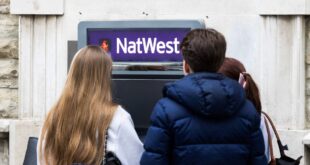UK households have lost £230 from their bank accounts in a cruel cost of living blow amid April’s price hikes. Broadband, mobile and phone bills are rising, as well as TV subscriptions, water bills and also council tax too – not to mention car tax.
“If you stay with your existing provider, check for the cheapest deal elsewhere, then contact them, tell them you’re thinking of leaving, and ask them to match the price,” says Sarah Coles, head of personal finance at the investment platform Hargreaves Lansdown.
And a swathe of other bills – from Royal Mail stamps to NHS dental charges – will become more expensive too. There’s also hikes for BBC TV licence fee payers this month, who face paying out an extra tenner to watch the BBC.
READ MORE All the parts of England set for snow on Wednesday with seven places worst-hit
Broadband, TV and mobile – £50
After last year’s “mid-contract” price increases of up to 17%, many broadband customers are facing a further 8% increase at around this time – typically adding about £30 a year to many people’s costs.
Although they vary, BT/EE, Vodafone and Three are all putting up bills by an average of 7.9%. EE and Tesco Mobile (non-Clubcard) customers face a price rise of 7.9%. At O2 Mobile it’s 8.8%.
Water – £71 a year
The cost of water and sewerage bills in England and Wales is set to rise by 6%, or about £27, bringing the average annual bill to £473 from April 1. This increase, confirmed by Water UK, is intended to fund a record £14.4billion investment by water companies to ensure supply security and ‘significantly reduce’ the amount of sewage in rivers and seas.
Shadow environment secretary Steve Reed criticised the Conservative government for turning a blind eye to corruption in the water industry. He said: “It is staggering that water bosses are lining their pockets with millions in bonuses, while asking consumers to foot the bill.
“Labour will put failing water companies under special measures. We will give the regulator new powers to block the payment of any bonuses until water bosses have cleaned up their filth. With Labour, the polluter, not the public, will pay.”
Council tax – £103 a year
Analysis by the County Councils Network (CCN) found that 95% (128) of the 136 county and unitary local authorities in England who have already published their budget plans want to raise council tax by the maximum permitted.
The Government is allowing cash-strapped local authorities to increase council tax by up to 4.99% from April 1 without calling a referendum. It means that a typical Band D household faces an average increase of £103 on their bills over the year.
It comes after the Government announced a £600million cash injection for struggling councils last month amid rocketing demand for social care.
Car tax/VED – £10
Chancellor Jeremy Hunt MP announced last November in the Government’s Autumn Statement that Vehicle Excise Duty (VED) would rise in-line with inflation in 2024. HM Treasury has confirmed to Auto Express that given inflation has been as high as 6 per cent in recent months, VED has risen by £10 for 2024.
This brings the yearly fee (paid between years two and six of ownership) for non-zero emissions vehicles bought after March 2017 to £190, up from £180. Plug-in hybrid cars still get a £10 discount, meaning drivers will pay the same as petrol and diesel car owners did last year. Electric cars and hydrogen fuel cell cars remain exempt from VED for one more year, although this tax break will end in 2025.



